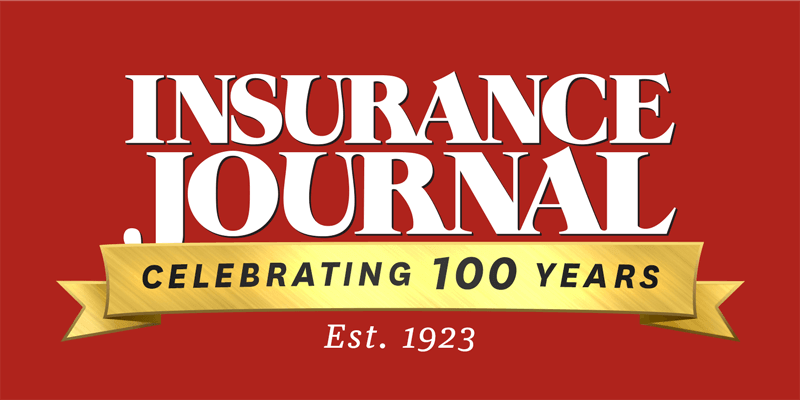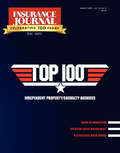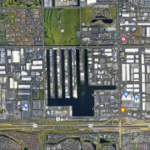Angry investors are seeing far fewer financial benefits from lawsuits accusing corporate America of securities fraud, but may be on the cusp of a turnaround.
The number and size of securities fraud settlements that won final U.S. court approval fell in 2011 to the lowest in a decade, amid a drop in cases linked to accounting problems and U.S. Securities & Exchange Commission enforcement activity.
According to a study released by Stanford Law School and Cornerstone Research, courts in 2011 approved 65 such settlements totaling a mere $1.36 billion, down from 86 settlements totaling $3.21 billion in 2010. The dollar amount is less than half the $2.78 billion recovered in 2003, which had been the lowest since the adoption the prior year of the Sarbanes-Oxley corporate governance law.
Still, Laura Simmons, a business professor at the College of William & Mary and co-author of the study, said large settlements involving American International Group Inc. and other companies, as well as increased SEC enforcement activity, may make 2012 a more rewarding year for investors.
Last year, the SEC filed 735 enforcement cases, up 8.6 percent from 2010 and the most in its history, according to the regulator’s annual report. The largest 2011 settlement in Cornerstone’s study was a $208.5 million accord by officers, directors, underwriters and an auditor for Washington Mutual Inc., the largest U.S. bank or thrift to fail.
Simmons said the drop in accounting-related cases may stem from fewer restatements, which in turn may be attributed in part to improved corporate governance under Sarbanes-Oxley. She also said that some plaintiffs’ lawyers may have focused more in recent years on housing-related litigation, including the sale of risky mortgage-backed securities, rather than more traditional securities fraud cases.
Cornerstone’s study excludes settlements challenging mergers. Such cases accounted for 43 of the 188 new securities fraud lawsuits filed last year.
Settlement totals for 2012 will include AIG’s $725 million settlement to resolve claims accusing the insurer of accounting fraud and stock price manipulation. Other accords topping $100 million that may be included are with Lehman Brothers Holdings Inc.; wireless equipment company Motorola Solutions Inc.; National City Corp., a bank now owned by PNC Financial Services Group Inc.; and private education company Apollo Group Inc.
Additional Key Findings
- Among settlements in 2011, allegations related to violations of generally accepted accounting principles were included in only about 45 percent of settled cases compared with nearly 70 percent of settled cases in 2010 and 68 percent for the prior five years.
- Class action settlements involving accompanying SEC actions decreased to less than 10 percent in 2011 compared with nearly 30 percent in 2010.
- The number of settled cases involving companion derivative actions also decreased in 2011 compared with 2010. Slightly less than 40 percent of cases settled in 2011 were accompanied by a derivative action filing compared with more than 45 percent of cases settled in 2010.
- In 2011, the average class period length for cases settled was 1.3 years, 32 percent shorter than the average class period for the prior five years and the lowest average for any single year during that period.
- The median Disclosure Dollar Loss – the dollar value decrease in the defendant firm’s market capitalization at the end of the class period – decreased to $112 million in 2011, representing a 39 percent year-over-year decline and a 22 percent decline compared with the median for the preceding five years.
- The percentage of settlements involving underwriters in 2011 matched the all-time high of 26 percent reached in 2010. As 60 percent of those cases that settled in 2011 had filing dates in 2007 and 2008, this increased level can be attributed to the higher number of case filings involving Section 11 claims and underwriter defendants during those years.
- While filings of cases related to the credit crisis declined in 2011, settlements of these cases increased. Included in the study were 10 settlements in 2011 related to the credit crisis. Overall, these cases continue to settle at a slower rate than traditional cases.
The full text of the report is available at the Cornerstone Research website at www.cornerstone.com/post_reform_act_settlements.
On The Web
Visit InsuranceJournal.tv for more D&O coverage from this year’s Professional Liability Underwriting Society’s (PLUS) D&O conference.
Who Pays for Securities Actions? Directors? Insurers?
In D&O, It’s Not Always About the Money
Claims Rising for Private Company, Non-Profit D&O Coverage
What Happened with Securities Actions in 2011
Topics Trends USA Fraud Directors Officers
Was this article valuable?
Here are more articles you may enjoy.


 Political Violence in Polarized US at Its Worst Since 1970s
Political Violence in Polarized US at Its Worst Since 1970s  Zurich American Off the Hook on Harvard’s Legal Costs in Affirmative Action Case
Zurich American Off the Hook on Harvard’s Legal Costs in Affirmative Action Case  Divers Find 32 Cars Submerged in Lake Near Miami
Divers Find 32 Cars Submerged in Lake Near Miami  Severe Convective Storms Top Insured Natural Disaster Losses in H1: Swiss Re
Severe Convective Storms Top Insured Natural Disaster Losses in H1: Swiss Re 


